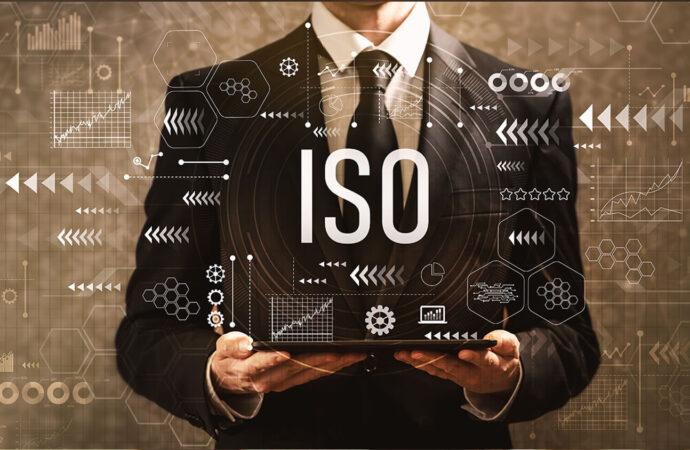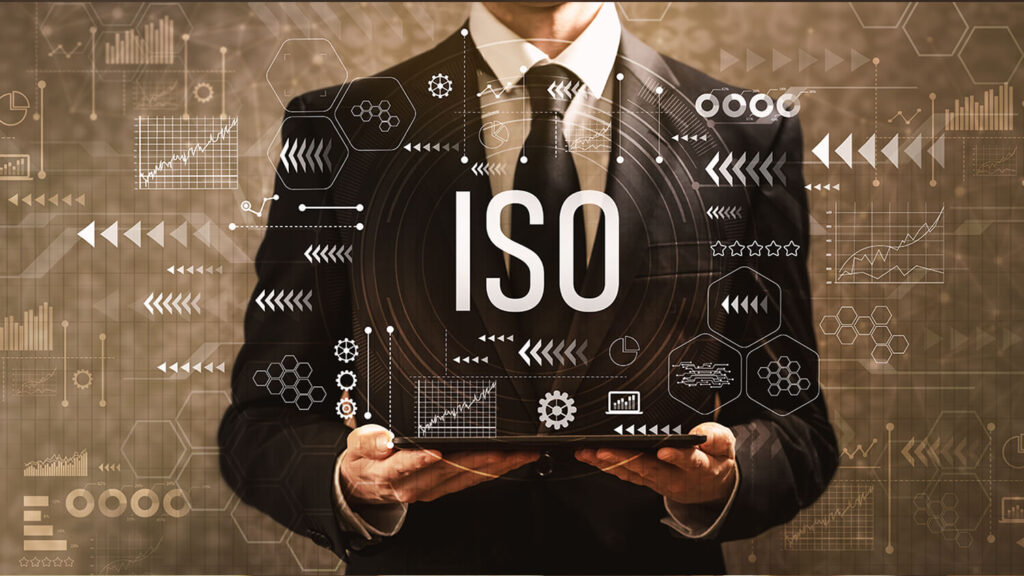Additional ISO Certifications We Offer in Tulsa, Oklahoma (OK)
Contact Us

If you own a company or organization in Tulsa, Oklahoma, we are sure you are aware that certifications such as ISO 9001 and other mandatory standards, are required for you to operate properly and offer the best. There are many regulations, requirements, standards, norms, and a very long list of aspects you have to meet. However, we highly suggest you start with the ISOs required for your company since they will help you to meet other regulations and requirements without having to pay individual attention to them.
Now, how easy is it to implement them? Do you need help to get certified in an ISO? Most companies—at the beginning—decide to follow the guidelines on their own, which isn’t a bad move when you have a good idea of the standard you are trying to implement. But many of these companies tend to have problems in meeting every requirement to be able to get certified, and they usually don’t notice it until it is time for the official audit and, of course, after it. Therefore, if you are not confident about being able to handle it or are having a hard time with any standard, make sure you get our help at IQC The ISO Pros.

We are a company with years of experience in the ISO industry, which means we can provide you with training, consulting, and implementation services from qualified and experienced professionals. Just make sure to let us know the standard you are aiming for and our experts will be at your company in Tulsa, Oklahoma or if you are located in another city, we still can get there.
What happens if you aren’t sure about the ISO you need? Or if you aren’t certain that our team is able to help you?
We have a long list of standards we can help you with and get your certification, below:
- ISO 9001.
Focused on the quality management system of any company and organization in order to establish, maintain, and improve it to meet customer satisfaction and cover all the needs in the company.
- Automotive IATF 16949.
Very similar to the previous standard since it also aims for the same system. However, it only sets more requirements and guidelines for the QMS of automotive companies that need to cover customers’ needs.
- Medical Devices ISO 13485.
Since medical device manufacturers need to ensure no item is defective, more regulations and guidelines are established in this standard for them and help to improve every process in the manufacturing of the company.
- Body Armor BA 9000.
Despite being a voluntary standard, it helps companies and businesses that manufacturer body armor and equipment to improve the quality of their products and offer more satisfaction.
- Anti-Bribery ISO 37001.
Aims for companies that require an anti-bribery management system to prevent and address risks, threats, and any type of danger to the company.
- Automotive Core Tools (APQP, AQP, PPAP, FMEA, SPC, MSA, R&M).
Although every core tool has a different function and goal, all of them have one in common: improving processes in the automotive supply chain to make sure the communication between suppliers and customers is better and smoother.
- Capability Maturity Model Integration (CMMI) Levels 1-5.
Focused on the capability and maturity levels of a company, the guidelines in the ISO help to establish goals and needs based on these levels and allow companies to grow and improve their processes.
- Cybersecurity Maturity Model Certification (CMMC).
The standard was established in 2020 for the U.S. Department of Defense to ensure companies in the DIB meet certain levels of cybersecurity to prevent any threats and risks that could affect the security of the information and actions.
- Counterfeits AS6081.
The guidelines help to address the number of parts that enter the aerospace supply chain and helps to establish methods and take actions in order to reduce them by using a security management system.
- Energy ISO 50001 and SEP.
The ISO along with the Superior Energy Performance program provides incredible guidelines to make companies more energy-efficient and have an effective energy system.
- Occupational Health and Safety Management System (OHSMS) ISO 45001.
Sets regulations and measures to guarantee the health and safety of every employee and visitor in the company by preventing risks, accidents, and irreparable harm for the individual and company at the same time.
- Forestry SFI ATFS (Sustainable Forestry).
This voluntary program created for the world’s largest forestry certification and a non-profit company in the same field aims to reduce the number of companies taking over green spaces and occupying more than what they actually need.
- Aerospace AS9100.
Similar to ISO 9001 since it focuses on the QMS but, in this case, only on the aerospace ones. It has all the guidelines to ensure the parts and products meet customer satisfaction in the aerospace industry.
- Asset Management ISO 55001.
Helps companies to have control over the lifecycle of assets that leads them to have control over processes and daily activities, bringing more benefits to the company, reducing risks, and optimizing every section and area.
- International Traffic in Arms Regulations, ITAR.
Establishes the regulations to control the export of defense and military technologies and equipment from the USA in order to prevent future threats and risks that could affect the entire country.
- Laboratory Accreditation ISO 17025.
It’s a generic accreditation required for any laboratory in Tulsa, Oklahoma, and all over the USA to show they are competent and can offer their services to the public.
- Packaging ISO 15378.
Sets regulations to ensure pharmaceuticals and medical device manufacturers use high-quality materials for the primary packaging of their products.
- Gluten-Free Certification (GFC).
Standard required for any food company that aims to offer gluten-free products in the market and ensure they won’t affect people’s health by not meeting the right regulations.
- Food Safety ISO 22000.
Encourages companies in the food industry to ensure the processes involved in obtaining the final result are safe and healthy to be able to offer the product to the customers.
- Food Safety Modernization Act FDA FSMA.
Unlike another ISO, this one focuses on preventing foodborne illness instead of finding solutions for them once they have taken place.
- Telecommunications TL 9000.
Provides requirements and guidelines for companies in the ICT to know how to produce their products and services in the industry in order to meet client satisfaction and all its needs.
- IT Service ISO/IEC 20000-1.
Focused on the IT management system of the company, sets requirements to ensure the services offered by the organization satisfy the customer and are at the top of in terms of quality.
- Ethical Sourcing SQFI.
Ensure that companies obtain products by following processes that are sustainable and responsible, and have fulfilled every regulatory requirement.
- Facility Management ISO 41001.
The guidelines help companies to improve their efficiency and effectiveness in every process performed or conducted to ensure they meet customer satisfaction and bring more value to the business to place it in a more competitive market.
- Responsible Care RC14001.
Chemical companies implement it to obtain better results in different aspects such as health, quality, and many others, to bring more value to the company and ensure its growth over time.
- Supply Chain ISO 28000.
Encourages and helps companies to establish a security management system in the supply chain to prevent any low-quality or defective product from entering the supply chain and address the elements that are affecting the quality and production.
We can perform audits and implement the standard
Audits are an important part of any company despite people hating them at some point. They not only help you to find irregularities but also, have more control over all the aspects and processes in the company. However, performing them is not that simple.
Any company that wants to conduct one either for internal and personal purposes or as part of a business and deal with other organizations, needs to get ISO 19011 certified. Audit Management Systems ISO 19011 is the main and generic standard for audits that helps companies to know how to create and establish the program to conduct it later on. Of course, it also focuses on maintaining and improving it.
In our company, IQC The ISO Pros, we are particularly familiar with it since we also perform audits besides helping you with your ISOs. Therefore, you can expect us to have a professional but also personal experience with it. With that said, you can count on us for its implementation or to perform any of these audits:
- Pre-assessment Audits.
Focuses on conducting an audit before the official one to determine if the company requiring it has met all the requirements in the standard or ISO it wants to get certified in.
- Compliance Audits.
Determines if the organization has met all mandatory and legal regulations that allow it to operate and continue in business while also guarantee its growth thanks to the right implementation and guidelines followed.
- Documentation Audit/Desk Audit.
Determines if an employee—or employees—in a company are properly paid for all the work they take care of in it. If not, it is necessary to provide the right compensation.
- Outsourced Internal Auditing.
Consists of an internal audit that is performed for a third-party—in this case, us—to identify or find any irregularity or problem that wasn’t detected for the company itself during its internal audit.
- Virtual Internal Auditing.
It is the process of performing an internal audit but completely remotely and without needing to deal with paperwork.
- Second Party Audits.
Customers decide to perform an audit on a supplier to determine if it meets every legal regulation, ISO, requirement, and normative to ensure it is able to offer customer satisfaction. Our role is to perform it on behalf of the customer.
- Supplier Audits.
Determines if the supplier has met all the required standards and norms for its quality management system, and this audit focuses on both mandatory or voluntary standards in case the supplier decided to implement non-regulatory ones.
- Supplier Evaluation.
Collect the information of a supplier, study its results, and based on what it offers, determine if it is a potential option for the company, competent and efficient.
Get certified without hesitation
Our company IQC The ISO Pros will always be available for you in Tulsa, Oklahoma, and any other city in the state for you to get certified in any of the previous ISOs. However, we are always making sure to include more to our list so you can get trained or ask for implementation and consulting services from our experts.
We are confident about being the solution to your problems and needs, so don’t hesitate to contact us to get started!

